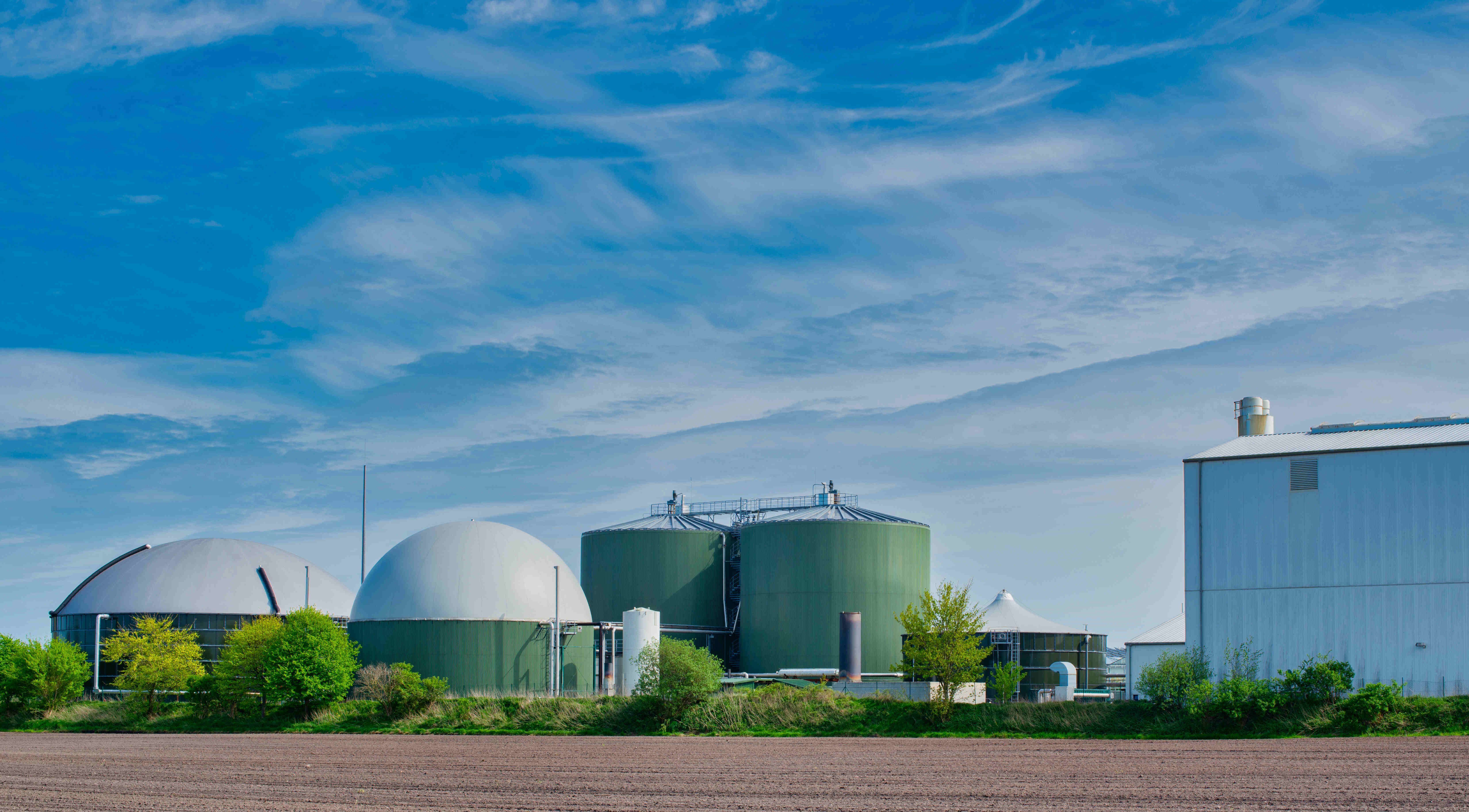Removing siloxanes from landfill biogas
Increasingly, companies in Spain are recognising the value of deriving biogas from waste at landfill sites and wastewater treatment plants. DESOTEC has experience of working with clients in Spain, supplying them with mobile activated carbon mobile filters to purify biogas of the contaminants that can damage machinery used downstream. They can also be used to upgrade biogas into biomethane.
The problem
A multinational company, whose headquarters are in Spain, provides environmental solutions in the waste sector.
At an active landfill site in the Madrid area, the company has installed a plant to collect the biogas coming from the decomposing waste. This fuels a combined heat and power (CHP) engine to create energy.
The biogas contains volatile organic compounds (VOCs) in a concentration of around 300 mg/m³, including just 15 - 30 mg/m³ of siloxanes. When fed into CHP engines, siloxanes turn into silicon dioxide or sand, causing serious abrasion to various engine parts.
The client was already working with DESOTEC through a third party at a site in the Barcelona area. When our sales manager got in contact to discuss further projects, the client decided to contract us directly at the Madrid site.


The solution
The client provided DESOTEC with the relevant parameters. As there was a very high flow rate of 1 200 Nm³/h, we recommended our AIRCON HC-XL filter, filled with a standard carbon type suitable for adsorbing VOCs.
The biogas also contains 100-225 mg/m³ of hydrogen sulphide (H₂S), which can degrade engines. We advised that our filters can also remove H₂S using impregnated carbon, but the client’s primary concern was siloxanes. In any case, the standard carbon type also removes some of the H₂S.
We delivered the filter in June 2021 within two weeks of receiving the order, and it was connected by the client.
We estimate the filter will require exchange in around eight months’ time. However, concentrations of contaminants can fluctuate greatly at landfill sites, so the customer will carry out regular monitoring.
The client is considering introducing a second filter unit in series to adsorb contaminants once the first is saturated, thus ensuring the biogas remains completely free of siloxanes at all times and optimising the carbon consumption.
The results
The client is very happy with the filtration solution so far: no siloxanes are detectable, and the set-up is low maintenance. Longer term, the expected outcome is that the CHP engine will require less maintenance and have a longer lifespan.
The client is now preparing to install another AIRCON HC-XL filter at a landfill site in southern Spain. Again, it is envisaged that a second filter unit will be added later in a lead-lag configuration.
The client has also requested a proposal for another landfill site in the Madrid area with a much lower flow rate. Here, we would install our smaller AIRCON 2000 LPF model.
This case demonstrates how mobile activated carbon filtration is a quick, easy and effective way to purify biogas for use in engines and boilers. It is a typical case for this sector, though DESOTEC also operates at sites where concentrations of both siloxanes and H₂S are far higher.
If maintenance technicians spot any signs of damage to the CHP engine, it could indicate that the H₂S is causing issues. In this case, DESOTEC would recommend redesigning the system to include a further filtration step using impregnated activated carbon. One of the advantages of our mobile filters is that it is simple to optimise the filtration system later on.
DESOTEC’s service also includes the management of the spent carbon. It is transported safely away from customers’ sites in closed filter units, and analysed at our facilities so the right measures can be taken for handling it. All molecules that have been adsorbed onto the carbon are desorbed inside DESOTEC’s furnaces and completely destroyed in accordance with national and European legislation. The spent carbon is reactivated for reuse. Our facilities and their emissions are under continuous online monitoring, guaranteeing that only harmless water vapour exits the chimneys.
To discuss how DESOTEC solutions could work for your biogas project, get in touch with our team of engineers today.
How can DESOTEC help you?
To discuss how DESOTEC can help remove pollutants from your plant’s air emissions, contact the team today.
Contact our expertsHow can DESOTEC help you?
To discuss how DESOTEC can help remove pollutants from your plant’s air emissions, contact the team today.
Contact our experts-
Air and Gas Purification
Our sustainable filtration solutions ensure air purification, odor control, and high quality process gases such as biogas and biomethane. -
Our unique service
Our closed-loop, full-service model is as unique as your business needs. We’ll define the right filtration setup and safely recycle filtration waste, making it easy to go green. -
Your Sustainability Journey
Like you, we care about protecting our air, water, and soil for future generations. Our filtration solutions help you meet environmental standards, reducing your carbon footprint.


